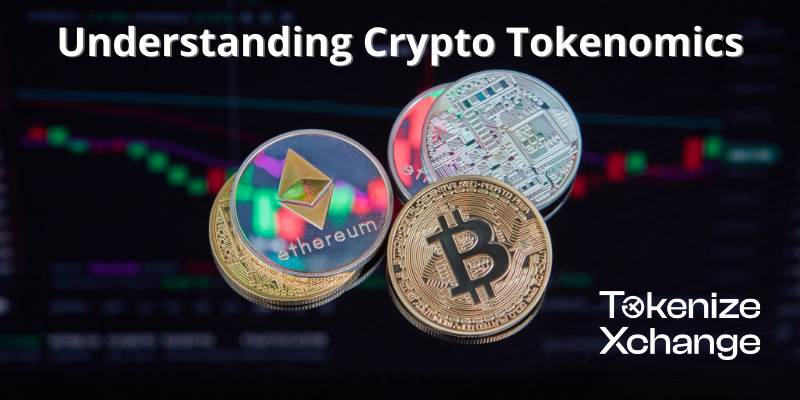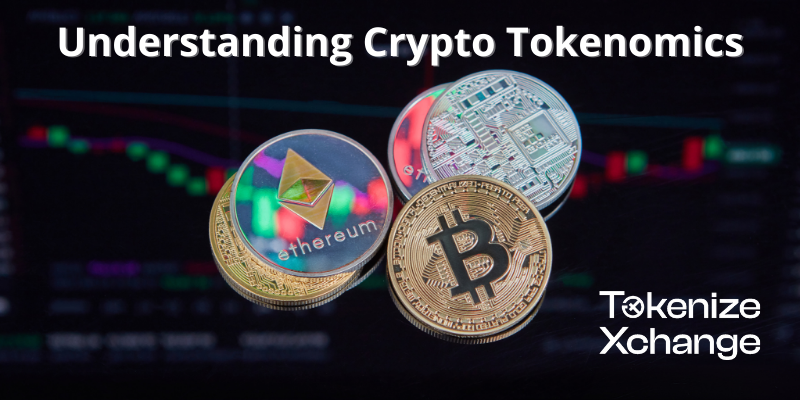Tokenomics (also known as ‘token economics’) is the economic model and principles that underpin cryptocurrencies. Crypto tokenomics is based on the principles of traditional economics, but it also incorporates unique features and mechanisms that are specific to cryptocurrencies. It is a crucial aspect of the cryptocurrency ecosystem, as it determines the supply, demand, and value of these digital assets.

Key Elements of Tokenomics to Consider:
- Supply: The total number of tokens that will be created and made available for distribution. This can be fixed or dynamic and can be influenced by factors such as mining or staking rewards. For example, most cryptocurrencies have a fixed supply, which means that the total number of coins that will ever be created is predetermined. A token with a fixed supply and a high demand will likely increase in value over time, while a token with a high supply and low demand may decrease in value.
- Demand: The number of people and entities that want to buy and use the token. This is influenced by factors such as the utility of the token and the perceived value of the underlying project or network.
- Incentives: The rewards and penalties built into the system to encourage or discourage certain behaviour. For example, rewards for holding or using the token can help increase demand, while penalties for hoarding or not using the token can help decrease the supply.
- Distribution: The mechanisms for distributing the tokens to the public, such as ICOs, mining, or staking.
Importance of Tokenomics
Crypto tokenomics plays a role in the mining of cryptocurrencies. In most cases, miners use specialized computer hardware to compete against each other to solve complex mathematical problems. The first miner to solve a problem is rewarded with a certain number of coins, which is determined by the crypto tokenomics of the particular cryptocurrency.
Crypto tokenomics also governs the issuance of new coins. This is typically done through an initial coin offering (ICO), in which a new cryptocurrency is issued and sold to investors. The funds raised through an ICO are often used to develop the technology and infrastructure of the new cryptocurrency.
The value of a cryptocurrency is also determined by its tokenomics. The supply and demand for a particular cryptocurrency, as well as its utility and perceived value, all play a role in its market price.

In conclusion, crypto tokenomics is an essential aspect of the cryptocurrency ecosystem. It determines the supply, demand, and value of these digital assets, and it incorporates unique features and mechanisms that are specific to cryptocurrencies. Understanding crypto tokenomics is crucial for investors, miners, and anyone else looking to create a successful cryptocurrency or blockchain project in the crypto world.
